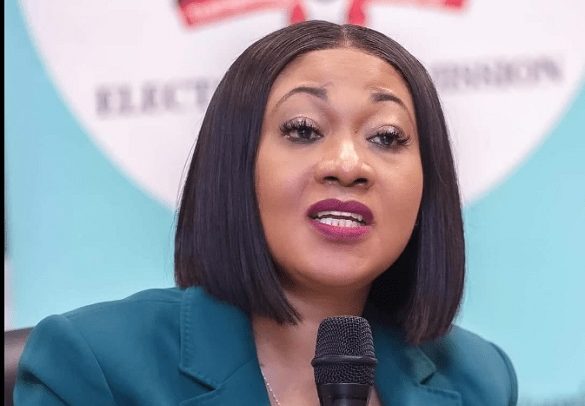Jean Mensa
The Electoral Commission (EC) has started distributing ballot papers to all 16 regions of the country ahead of the December 7 general election.
In a letter issued and signed by the EC’s Deputy Chairman in charge of Operations, Samuel Tettey, yesterday, the Commission notified the general secretaries of the political parties that the first phase of distribution would begin in the Greater Accra Region on November 14, 2024.
According to the EC, Western, Central, Savannah, and Upper West regions will receive their ballot papers on Friday, November 15.
The letter further indicated that Ashanti, Ahafo, and Western North regions would receive their ballot papers on Saturday, November 16, while Eastern, Upper East, and North East Regions are set for distribution on Sunday, November 17.
Northern, Bono East, and Bono regions are scheduled to receive their ballots on Monday, November 18, followed by Volta and Oti regions on Tuesday, November 19, 2024, the letter indicated.
Earlier this month, the EC had suspended the printing of ballot papers following the death of the Ghana Freedom Party (GFP) flagbearer, Akua Donkor, on October 28.
The suspension, according to the EC, was in line with electoral laws to allow the GFP to file a nomination for a replacement for their late flagbearer, whose image had already been printed on the ballot papers.
However, the EC announced this week that the running mate of the late Akua Donkor, Philip Appiah Kubi, popularly known as Roman Fada, had been disqualified.
The EC disclosed that the nominee submitted false information, leading to his disqualification. With this matter resolved, the EC notified printing houses to resume printing, which is now 90 percent complete.
Additionally, the EC has released the final certified voters’ register for the December elections, with a total of 18,774,159 eligible voters.
This includes 18,640,811 biometric registered voters, 131,478 special voters, and 1,870 individuals whose biometric data were not captured.
The Commission also said it had recruited approximately 200 experts in mathematics and statistics to support it during the collation of results on December 7, enhancing both efficiency and accuracy.
By Ebenezer K. Amponsah


